
AI Consulting for Small Businesses: How to Leverage AI for Growth & Efficiency
Last updated: July 10, 2025 Read in fullscreen view
- 12 Dec 2025
 FlexClip AI Video Magic Review: Professional AI-Powered Video Editing 62/97
FlexClip AI Video Magic Review: Professional AI-Powered Video Editing 62/97 - 06 Dec 2025
 Enterprise Operations 2.0: Why AI Agents Are Replacing Traditional Automation 48/83
Enterprise Operations 2.0: Why AI Agents Are Replacing Traditional Automation 48/83 - 23 Dec 2025
 Microsoft Power Automate vs. n8n: What’s the Real Difference? 47/77
Microsoft Power Automate vs. n8n: What’s the Real Difference? 47/77 - 25 Nov 2025
 How AI Agents Are Redefining Enterprise Automation and Decision-Making 46/96
How AI Agents Are Redefining Enterprise Automation and Decision-Making 46/96 - 06 Nov 2025
 Top 10 AI Development Companies in the USA to Watch in 2026 41/90
Top 10 AI Development Companies in the USA to Watch in 2026 41/90 - 13 Oct 2021
 Outsourcing Software Development: MVP, Proof of Concept (POC) and Prototyping. Which is better? 40/486
Outsourcing Software Development: MVP, Proof of Concept (POC) and Prototyping. Which is better? 40/486 - 01 Jul 2025
 The Hidden Costs of Not Adopting AI Agents: Risk of Falling Behind 37/163
The Hidden Costs of Not Adopting AI Agents: Risk of Falling Behind 37/163 - 02 Dec 2025
 The Question That Shook Asia: What Happens When We Ask AI to Choose Between a Mother and a Wife? 37/63
The Question That Shook Asia: What Happens When We Ask AI to Choose Between a Mother and a Wife? 37/63 - 22 Dec 2025
 The Role of Automotive Software in Building Smarter Vehicles 35/59
The Role of Automotive Software in Building Smarter Vehicles 35/59 - 03 Dec 2025
 Templafy Features Explained: The Ultimate Guide to Streamlined Content Management 33/59
Templafy Features Explained: The Ultimate Guide to Streamlined Content Management 33/59 - 12 Oct 2022
 14 Common Reasons Software Projects Fail (And How To Avoid Them) 31/567
14 Common Reasons Software Projects Fail (And How To Avoid Them) 31/567 - 28 Nov 2025
 How AI Will Transform Vendor Onboarding and Seller Management in 2026 30/82
How AI Will Transform Vendor Onboarding and Seller Management in 2026 30/82 - 16 Oct 2025
 AI Inference Explained Simply: What Developers Really Need to Know 30/58
AI Inference Explained Simply: What Developers Really Need to Know 30/58 - 19 Oct 2021
 Software development life cycles 29/701
Software development life cycles 29/701 - 29 Nov 2021
 Memorandum of Understanding (MOU) for Partnership Agreements 28/544
Memorandum of Understanding (MOU) for Partnership Agreements 28/544 - 02 Oct 2022
 The Real Factors Behind Bill Gates’ Success: Luck, Skills, or Connections? 28/361
The Real Factors Behind Bill Gates’ Success: Luck, Skills, or Connections? 28/361 - 16 Dec 2025
 Reducing Cognitive Friction in Software Development: A Guide to Faster, Happier Teams 27/76
Reducing Cognitive Friction in Software Development: A Guide to Faster, Happier Teams 27/76 - 05 Jun 2025
 How AI-Driven Computer Vision Is Changing the Face of Retail Analytics 26/135
How AI-Driven Computer Vision Is Changing the Face of Retail Analytics 26/135 - 07 Nov 2025
 Online vs. Offline Machine Learning Courses in South Africa: Which One Should You Pick? 25/70
Online vs. Offline Machine Learning Courses in South Africa: Which One Should You Pick? 25/70 - 16 Oct 2024
 7 Game-Changing Features of InstaDoodle: The Ultimate AI Doodle Video Maker 24/62
7 Game-Changing Features of InstaDoodle: The Ultimate AI Doodle Video Maker 24/62 - 25 Dec 2025
 What Is Algorithmic Fairness? Who Determines the Value of Content: Humans or Algorithms? 23/47
What Is Algorithmic Fairness? Who Determines the Value of Content: Humans or Algorithms? 23/47 - 23 Dec 2024
 Garbage In, Megabytes Out (GIMO): How to Rise Above AI Slop and Create Real Signal 23/59
Garbage In, Megabytes Out (GIMO): How to Rise Above AI Slop and Create Real Signal 23/59 - 21 Nov 2025
 The Rise of AgentOps: How Enterprises Are Managing and Scaling AI Agents 22/69
The Rise of AgentOps: How Enterprises Are Managing and Scaling AI Agents 22/69 - 24 Dec 2024
 Artificial Intelligence and Cybersecurity: Building Trust in EFL Tutoring 20/180
Artificial Intelligence and Cybersecurity: Building Trust in EFL Tutoring 20/180 - 09 Jul 2024
 What Is Artificial Intelligence and How Is It Used Today? 18/243
What Is Artificial Intelligence and How Is It Used Today? 18/243 - 13 Oct 2025
 Dora AI: Turn Prompts Into Pixel-Perfect Websites-No Code, No Limits 18/63
Dora AI: Turn Prompts Into Pixel-Perfect Websites-No Code, No Limits 18/63 - 07 Oct 2025
 Case Study: Using the “Messaging House” Framework to Build a Digital Transformation Roadmap 17/86
Case Study: Using the “Messaging House” Framework to Build a Digital Transformation Roadmap 17/86 - 12 Jan 2026
 Companies Developing Custom AI Models for Brand Creative: Market Landscape and Use Cases 17/28
Companies Developing Custom AI Models for Brand Creative: Market Landscape and Use Cases 17/28 - 05 Sep 2023
 The Cold Start Problem: How to Start and Scale Network Effects 17/203
The Cold Start Problem: How to Start and Scale Network Effects 17/203 - 29 Oct 2024
 Top AI Tools and Frameworks You’ll Master in an Artificial Intelligence Course 17/385
Top AI Tools and Frameworks You’ll Master in an Artificial Intelligence Course 17/385 - 04 Oct 2021
 Product Validation: The Key to Developing the Best Product Possible 17/320
Product Validation: The Key to Developing the Best Product Possible 17/320 - 31 Aug 2022
 What are the best practices for software contract negotiations? 16/260
What are the best practices for software contract negotiations? 16/260 - 28 Oct 2025
 The Future of Real Estate: Key Trends and Essential Lessons in Digital Transformation 16/60
The Future of Real Estate: Key Trends and Essential Lessons in Digital Transformation 16/60 - 17 Oct 2025
 MLOps vs AIOps: What’s the Difference and Why It Matters 15/100
MLOps vs AIOps: What’s the Difference and Why It Matters 15/100 - 05 Mar 2021
 How do you minimize risks when you outsource software development? 15/335
How do you minimize risks when you outsource software development? 15/335 - 20 Dec 2021
 What is Hybrid Mobile App Development? 14/378
What is Hybrid Mobile App Development? 14/378 - 28 Jul 2022
 POC, Prototypes, Pilots and MVP: What Are the Differences? 13/697
POC, Prototypes, Pilots and MVP: What Are the Differences? 13/697 - 10 Nov 2025
 Multi-Modal AI Agents: Merging Voice, Text, and Vision for Better CX 13/96
Multi-Modal AI Agents: Merging Voice, Text, and Vision for Better CX 13/96 - 24 Oct 2025
 AI Agents in SaaS Platforms: Automating User Support and Onboarding 12/77
AI Agents in SaaS Platforms: Automating User Support and Onboarding 12/77 - 28 Oct 2022
 Build Operate Transfer (B.O.T) Model in Software Outsourcing 12/405
Build Operate Transfer (B.O.T) Model in Software Outsourcing 12/405 - 07 Nov 2022
 Why Design Thinking can save the outsourcing industry 12/194
Why Design Thinking can save the outsourcing industry 12/194 - 04 Oct 2022
 Which ERP implementation strategy is right for your business? 11/313
Which ERP implementation strategy is right for your business? 11/313 - 12 Dec 2021
 Zero Sum Games Agile vs. Waterfall Project Management Methods 10/409
Zero Sum Games Agile vs. Waterfall Project Management Methods 10/409 - 31 Jul 2025
 Top WooCommerce Pre-Order Plugins with Countdown & Discounts 10/93
Top WooCommerce Pre-Order Plugins with Countdown & Discounts 10/93 - 06 May 2025
 How Machine Learning Is Transforming Data Analytics Workflows 10/187
How Machine Learning Is Transforming Data Analytics Workflows 10/187 - 18 Jul 2021
 How To Ramp Up An Offshore Software Development Team Quickly 9/593
How To Ramp Up An Offshore Software Development Team Quickly 9/593 - 06 Dec 2024
 Steps For Integrating Sustainable Practices Into Business Operations 8/142
Steps For Integrating Sustainable Practices Into Business Operations 8/142 - 21 Aug 2024
 What is Singularity and Its Impact on Businesses? 8/403
What is Singularity and Its Impact on Businesses? 8/403 - 22 Sep 2025
 Why AI Is Critical for Accelerating Drug Discovery in Pharma 8/83
Why AI Is Critical for Accelerating Drug Discovery in Pharma 8/83 - 06 Mar 2024
 [SemRush] What Are LSI Keywords & Why They Don‘t Matter 7/176
[SemRush] What Are LSI Keywords & Why They Don‘t Matter 7/176 - 04 Oct 2023
 The Future of Work: Harnessing AI Solutions for Business Growth 7/275
The Future of Work: Harnessing AI Solutions for Business Growth 7/275 - 21 Apr 2025
 Agent AI in Multimodal Interaction: Transforming Human-Computer Engagement 7/188
Agent AI in Multimodal Interaction: Transforming Human-Computer Engagement 7/188 - 27 Aug 2025
 How AI Consulting Is Driving Smarter Diagnostics and Hospital Operations 6/100
How AI Consulting Is Driving Smarter Diagnostics and Hospital Operations 6/100 - 12 Aug 2024
 Understanding Google Analytics in Mumbai: A Beginner's Guide 6/99
Understanding Google Analytics in Mumbai: A Beginner's Guide 6/99 - 15 Apr 2024
 Weights & Biases: The AI Developer Platform 6/188
Weights & Biases: The AI Developer Platform 6/188 - 01 Dec 2023
 Laws of Project Management 5/302
Laws of Project Management 5/302 - 29 Aug 2025
 How AI Is Transforming Modern Management Science 5/46
How AI Is Transforming Modern Management Science 5/46 - 15 Aug 2025
 Quantum Technology: Global Challenges and Opportunities for Innovators 4/100
Quantum Technology: Global Challenges and Opportunities for Innovators 4/100 - 01 May 2024
 Warren Buffett’s Golden Rule for Digital Transformation: Avoiding Tech Overload 3/205
Warren Buffett’s Golden Rule for Digital Transformation: Avoiding Tech Overload 3/205 - 05 Aug 2024
 Affordable Tech: How Chatbots Enhance Value in Healthcare Software 2/169
Affordable Tech: How Chatbots Enhance Value in Healthcare Software 2/169
| About the Author | Anand Subramanian | Technology expert and AI enthusiast |
Anand Subramanian is a technology expert and AI enthusiast currently leading the marketing function at Intellectyx, a Data, Digital, and AI solutions provider with over a decade of experience working with enterprises and government departments. |
In the current digital revolution that changes so quickly, small businesses take risks and get rewards that can prove crucial to their growth and even existence. Since technological progress has come a long way and reached the point where it introduced artificial intelligence which has been a revolutionary trend for businesses, the use of artificial intelligence has been most beneficial for small businesses by finding various innovative ways to rebuild businesses, improve customer experiences, and become more digitally driven by developing concepts. AI consultancies provide personalized services with which small industries can harness AI to simplify procedures, get insights from data, and thus disrupt the markets and be competitive.
AI consulting for small businesses is a comprehensive service that involves everything from finding out the organization's current level of technology to introducing AI technology and strategies. Advisors always work hand in hand with the company owners to pinpoint the particular needs and the objectives, thus ensuring that AI solutions are a strategic fit for the whole business. By leveraging AI solutions such as machine learning, natural language processing, and predictive analytics, small enterprises can streamline their workflows, strengthen their marketing activities, and enhance customer loyalty. The present blog is going to dig deep into the different phases of AI consultancy, stressing the good points, the best approaches, and insights into applications that can facilitate the growth of small businesses in a digital world.
How Does AI Practically Bring Business Automation for Small Businesses
When the business is new and even the technology being applied is new in trend, the excitement level to view the desired result is overwhelming. A similar emotion is felt when practical AI solutions that are very fresh in the industry are applied to small business growth. Here are some practical AI solutions bringing business automation for small businesses:
- Streamlined Operations: A human brain gets stuck when the same task is assigned on a daily basis. To break the monotony and concentrate on other potential tasks, it is best to assign AI to automate the tasks that are repetitive in nature and do not necessarily require human attention.
- Enhanced Customer Experience: AI-driven chatbots and assistants are available around the clock to interact, answer, and resolve customer queries. The rate of responsiveness at any time of the day or late hours makes the customers think credibly about the brand and builds interest in their products/services.
- Data-Driven Decision Making: AI-powered tools are highly intuitive and can dive deep into large datasets to analyse customer preferences, current market trends, and relevant details that will help small businesses to make smart decisions.
- Cost Reduction: By using AI to handle daily tasks and manage resources more efficiently, small businesses can save considerably on their day-to-day operations. This lets them keep more of their earnings, which can help them grow and become more successful.
- Personalized Marketing: AI has the knack of analyzing customer data that gives a yardstick to create targeted marketing campaigns that engage best with customers and improve sales conversions.
What are the AI-efficient solutions for Small Business Growth?
The world is rapidly growing violently in the digital age, and as such, small businesses are stepping up to the challenge by adopting artificial intelligence to take their businesses a notch higher and to revolutionize the way they perform their work.
Customer relationship management (CRM) is one of the AI solutions that are being used by small businesses, and it is leading the pack in terms of effectiveness. To be more specific, such software incorporates artificial intelligence that is capable of generating data, which is then used to learn customer behavior, forecast customer purchases, and make marketing more personal. Not only is customer engagement improved, and the marketing effects limited to a particular section, but also sales and customer loyalty are increased through this means. Equally, chatbots that are powered by AI are available 24/7 for any customer concerns, such as queries, simple problem resolution at a time when human agents are busy (or absent). That way, the customer satisfaction rate ultimately skyrockets, and companies can use these extra resources in other manageable activities.
One other aspect where AI tools can be powerful is in data analysis, which is a key factor for the growth of small businesses. Employing AI in the business space allows companies to have smart data from an overwhelming volume of data sources. Certainly, AI tools can also identify which kind of data has the highest relevance and then inform the companies accordingly. There are many areas where good judgment can be applied, like inventory control or the marketing strategy, and all such key business areas. Following this in-depth analysis of the company’s potential, it is finally concluded where the threat lies and ultimately, how the business wants to satisfy its customers in the future.
As a matter of fact, AI is a great tool for automation because of its capacity to perform tedious repetitive operations. Through AI, businesses can empower their employees and transform the traditional human resources that perform such tasks into innovative, decision-making AI agents development. Successful implementation of these AI-enabled solutions will not only allow small businesses to improve their operational efficiency but also to set themselves up as front-liners of sustainable growth in a highly volatile business market.
Benefits of AI Adoption for SMEs
Using artificial intelligence in a business can enhance productivity, improve customer experience, and be a source of innovation for a low-cost company. Below are the benefits of incorporating AI applications for small and medium-sized businesses' success:
- Scalability: AI solutions can easily scale with the growth of the business, providing SMEs with the flexibility to expand operations without significant additional investment.
- Encourages Collaboration: As AI automates the majority of the technical tasks, healthy collaboration between operational teams and clients is maintained with consistent feedback and improvisations.
- Risk Management: Using AI, small businesses can spot any glitches right away. This helps them tackle stuff early before it gets out of hand.
- Competitive Advantage: Following the AI bandwagon early on gives smaller companies an upper hand over their competitors. It helps them brew fresh ideas and draw in more customers by providing cutting-edge tech ideas that make a difference to the growing business.
- Innovation and Growth: Using AI helps small and medium-sized businesses come up with fresh ideas for how they do things and the services they offer. This doesn't just make them grow more, it can also help them become the captains in their respective fields.
How Does Machine Learning Contribute to Small Business Growth
Machine Learning (ML) is another technology that has become very popular among the small business community due to its capability of data analysis and decision-making improvement. The goal of machine learning systems is to identify the patterns or trends that are hardly seen by humans in the large mass of data. This unique feature makes the small businesses smarter in their actions with the acquisition of real-time updates on customer satisfaction, inventory management, and market trends. The implementation of predictive analytics, for example, will show retailers the future position of a certain product, help them with pricing, and enable the customization of their marketing campaigns with new, young, old, or discount customer segments, which will lead to sales increase and customer satisfaction in the end.
Besides, ML has an additional valuable functionality, namely, the simplification of different aspects of work in the business area, making it more productive and the costs lower. By automating day-to-day activities, such as responding to customer queries through chatbots or carrying out email marketing in more personal ways, a small business owner gets time to address issues of great interest instead of the mundane ones.
Also, machine learning plays a vital role in customer relationship management as it generates insights into the behavior of the customer. This, in turn, enables the businesses to offer more personalized and engaging customer experiences that will boost customer retention. The application of machine learning allows small businesses to be more competitive in the market, to understand the new requirements of the clients, and lastly, to realize the desirable goals of the firm.
Affordable AI Strategies and Services Suggested for Start-ups
Most enterprises in their initial stages often encounter specific stumbling blocks, especially when it comes to money management and distribution of resources. The constructive elements in artificial intelligence and machine learning help start-ups to build a strong base to create a flourishing business, using some practical digital strategies that don’t demand a high budget in the starting phase of a small business:
- Leverage Open-Source AI Tools: Start-ups can utilize open-source AI frameworks such as TensorFlow, PyTorch, and Scikit-learn to develop machine learning models without incurring high software costs.
- Cloud-Based AI Services: Opt for cloud platforms like AWS, Google Cloud, or Microsoft Azure that offer pay-as-you-go AI services, allowing start-ups to scale their AI capabilities based on demand without upfront investments.
- Free AI Tools: Take advantage of freemium AI tools that offer basic functionalities for free, allowing start-ups to experiment and grow before committing to paid plans.
- AI-Powered Chatbots: Implement affordable AI chatbots for customer service to enhance user engagement and reduce operational costs, using platforms like Dialogflow or Chatfuel.
- AI Training and Workshops: Participating in online courses and workshops can help start-up teams build their AI knowledge and skills, often at low or no cost through platforms like Coursera or edX.
Eventually, AI consulting proactively guides small businesses to build their core business strength with the latest AI solutions that are practically viable and give out profitable results. With the help of AI tools and products, small businesses can simplify various operations, make better choices, and at the same time understand customer behavior, thus leading to not only efficiency but also staying ahead of the competition in the market. AI is, in the first place, not only going to provide small businesses with the ability to change but also help them become digitally successful.
For this reason, spending on AI consulting will be a key launching point for small businesses that are focusing on adapting and leveling up with the new age technology. Finally, AI consulting is a very important step that small businesses should imbibe to optimize technology to grow in the period ahead and become sustainable.
Anand Subramanian
Technology expert and AI enthusiast
Anand Subramanian is a technology expert and AI enthusiast currently leading the marketing function at Intellectyx, a Data, Digital, and AI solutions provider with over a decade of experience working with enterprises and government departments.





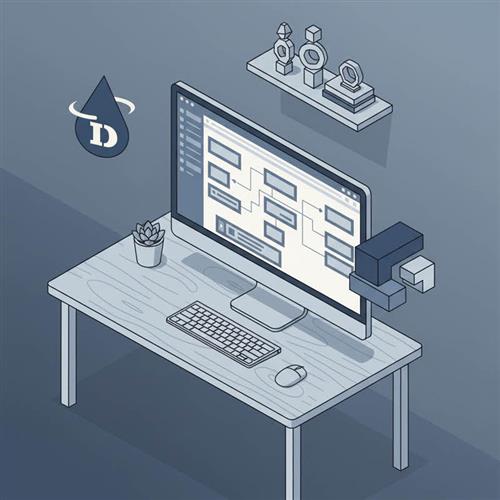



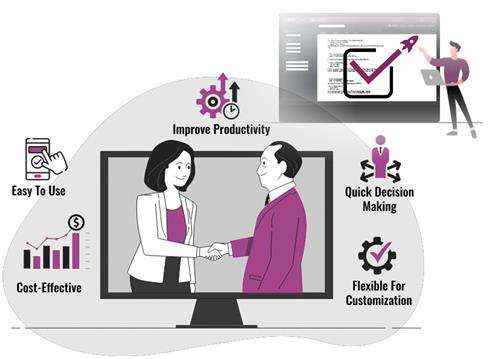


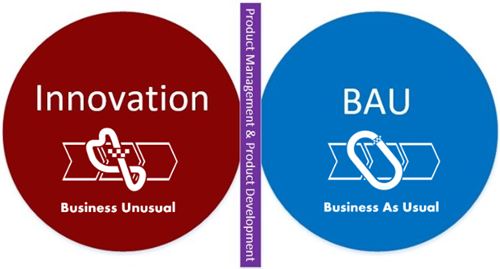

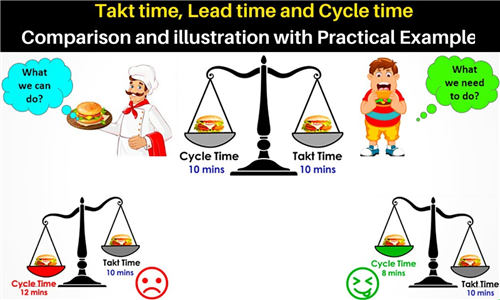
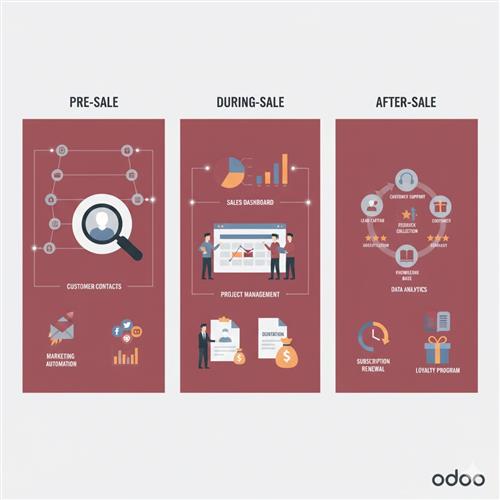




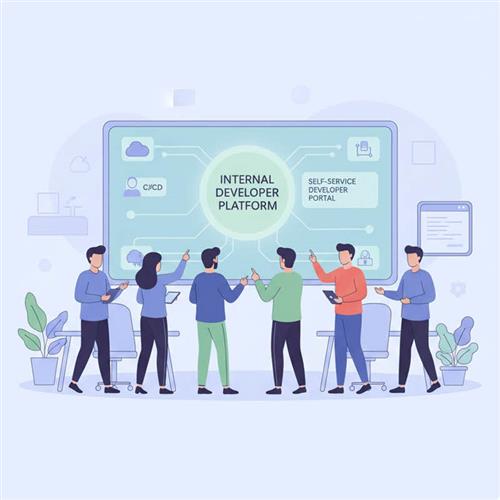













 Link copied!
Link copied!
 Recently Updated News
Recently Updated News